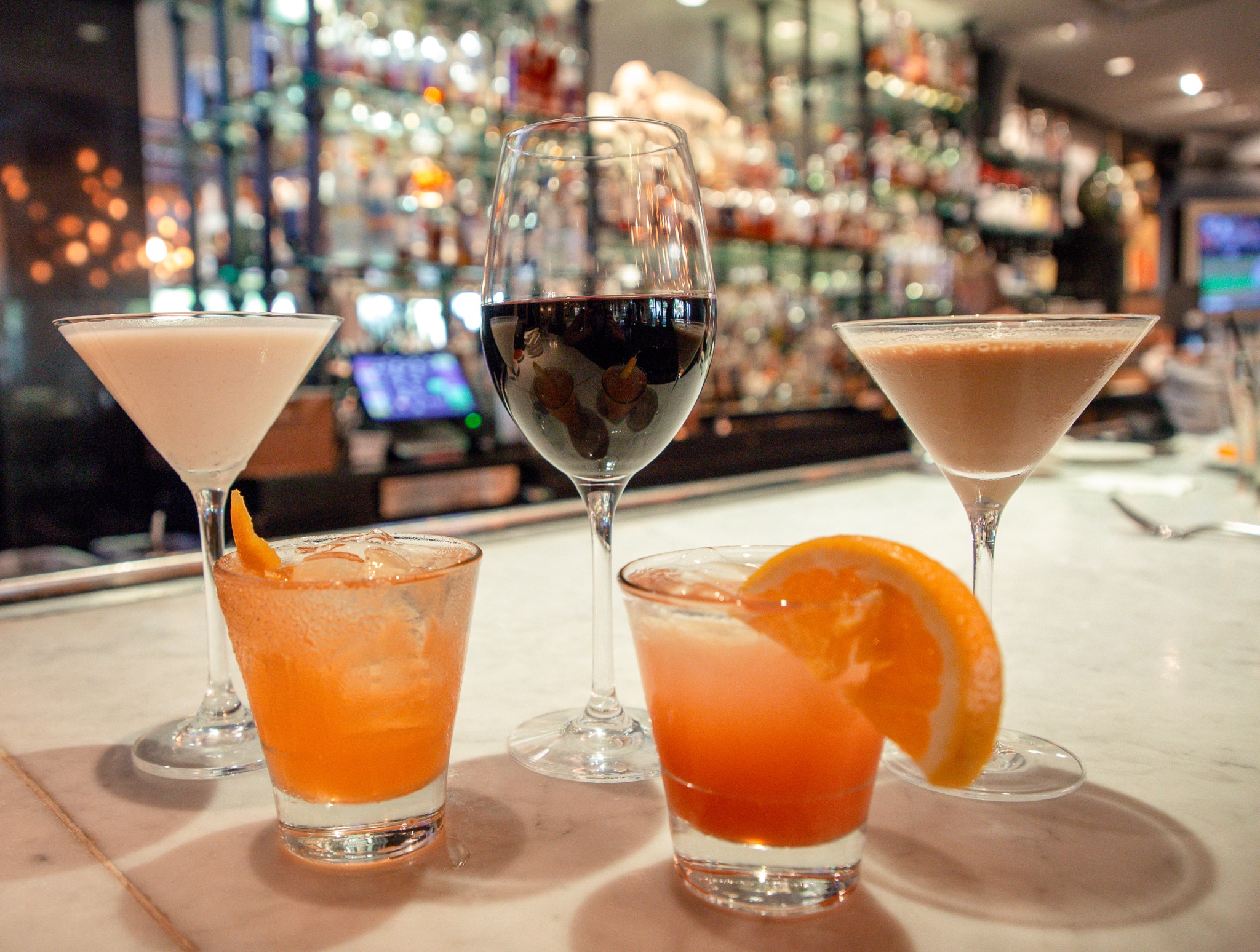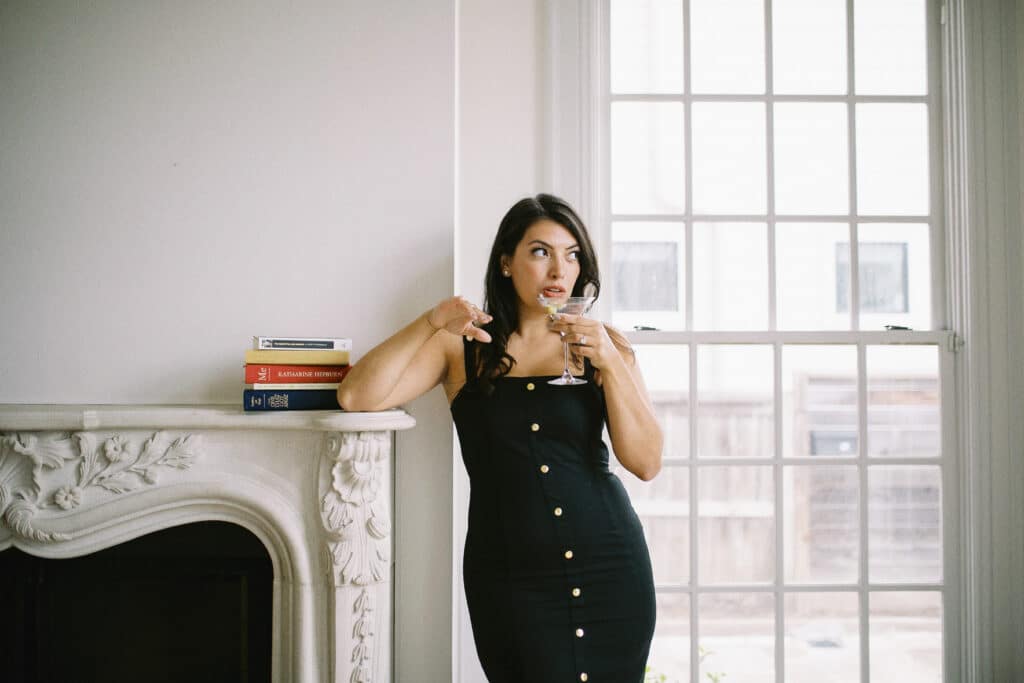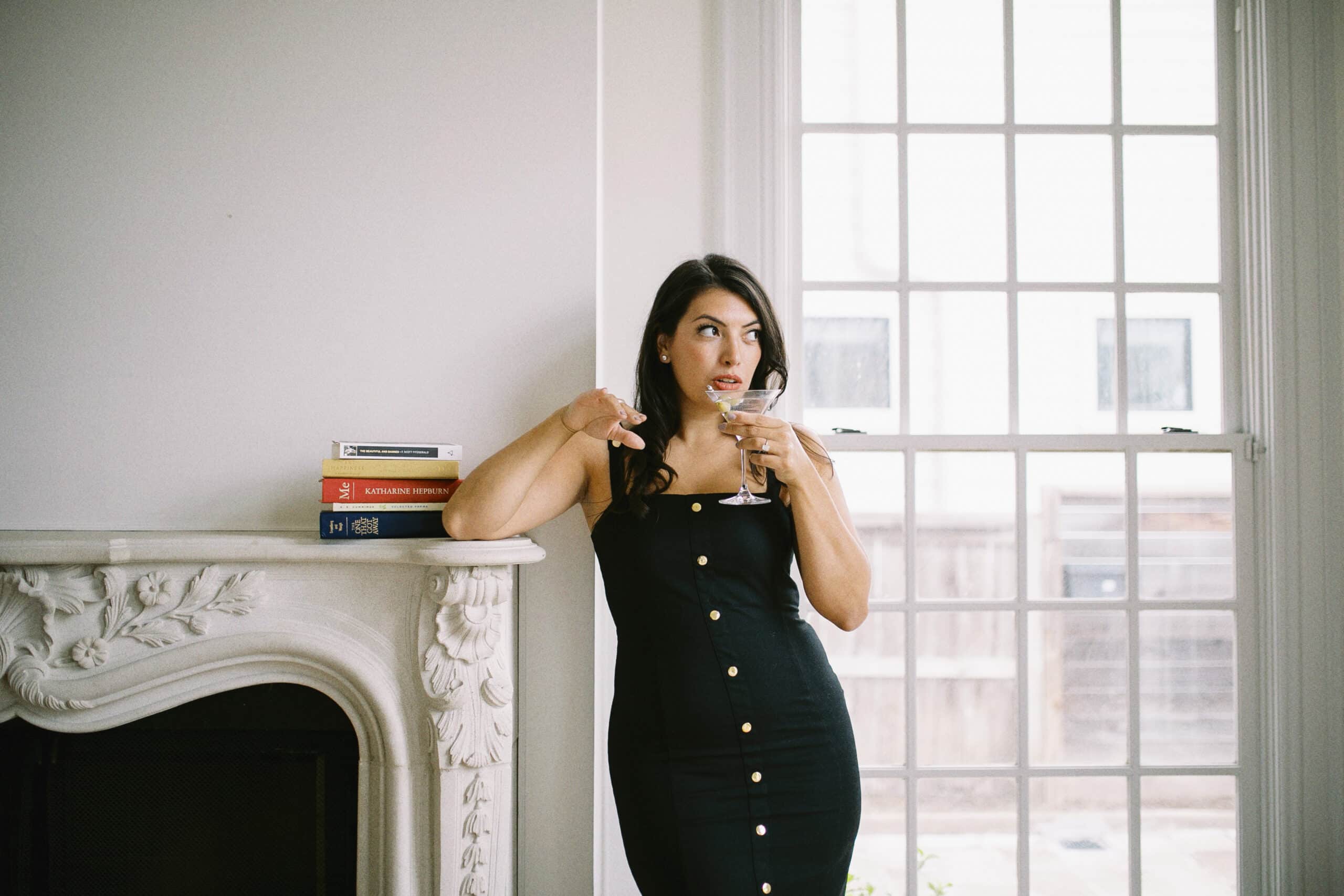Taking A Second to Ask ... Why
After our Labor Day Weekend wedding, my husband and I wanted to try to start a family so we got our hands on a few fertility and reproductive books. What I found surprising was the recurring theme of the negative effects of alcohol on the body and reproductive system for both male and females. This really shouldn’t have come as a surprise but it made me take pause and start to think about my relationship with alcohol.
There is an inordinate amount of data on this topic and some studies are mildly contradictory but the bottom line is that alcohol is bad for your body. You don’t have to be a doctor or a scientist to know that and so I am diving in to ask “why”.
Why do I drink alcohol? Why is it popular to drink alcohol? Who is really benefiting from me drinking alcohol?
When I asked myself why I drink alcohol … It took me an uncomfortably long time to think of the answer. I scrounged around to come up with the following:
Taste – I like the taste of champagne, cocktails and wine.
Effects – It makes me temporarily feel more relaxed, reduces anxiety and enhances my perceived level of fun. Aside from the occasional hangover, I am oblivious to any damaging long term effects.
Experience & Exposure – My mother rarely drank and my father drank socially. My first drink was a glass of champagne at a 15th birthday party which made me extremely dizzy, nauseous and paranoid. In high school and college I was exposed to popularized binge drinking, a normalized trend that continued well into my 30’s.
Acceptance – It’s popular and common in American cultural social settings to drink alcohol. Tales of silly things done under the influence are often retold in a lighthearted manner and it’s wildly common to see an alcohol focused post on social media.
Access – Alcohol is easily accessible, relatively affordable and is seemingly less harmful than other illegal drugs.

American Culture Popularization
Our culture has popularized and normalized consuming alcohol in movies, TV and the media from shows like The White Lotus to movies like American Pie. There seems to be a cloud of shame around not drinking and validation is often needed. Questions like “Are you pregnant?”, “Why aren’t you drinking?”, “Are you on medication?”, “Are you doing dry January?” may arise when it’s noticed that someone isn’t partaking in the festivities.
The real question here is, why does anyone even care if another person is drinking or not? Having one person on the side of drinking and another on the other side disrupts group think and creates an ethical divide, of one person making a wiser choice and another defending a losing argument. Birds of a feather tend to flock together.
Alcohol Proof and Profit
A bartender or server at a restaurant only prefers that you order a glass of wine over just water because one has a higher price tag and they are at work to make money. The higher the total tab, the higher the expected tip.
Alcohol can sometimes equate to as much as half of a bill at a restaurant which is why you might get a look of disdain from a waiter if you do choose water over wine. Furthermore, the list of non-alcoholic drinks at a typical restaurant consists of carbonated drinks and limited typically unhealthy options.
According to Britannica, alcohol has been around for thousands of centuries and became preferred over presumedly contaminated water when the British colonists arrived in America. So in the 1600 and 1700’s there was a somewhat valid excuse that drinking alcohol was indeed better than drinking contaminated water. Consuming alcohol became wildly popular during and after the Civil War and became a nationwide cultural problem bringing forth Prohibition from 1920-1933.
This is where things get interesting, organized crime (mobs and gangsters) were the main way to get your hands on alcohol until the 18th amendment (Prohibition) was repealed by the 21st amendment in 1933. During The Great Depression one of the worst economic times in history, low-volume alcohol (up to 3.2% by volume) was available for sale and taxed. In 2022, the alcohol industry in the US alone amounted to 261 billion dollars and is expected to grow 8% in 2023.
Companies that make it, those that sell it and the government that taxes it are the ones who actually benefit from the consumption of alcohol
Answering My Own "Why?"
Circling back to the initial question I asked myself, why do I drink when I know it is toxic and harmful to my body? The five weak answers I initially gave are completely dismantled especially when compared to the benefits of sobriety.
Better awareness, judgment, concentration and memory
Better sleep
Better health – According to the CDC long-term alcohol use effects include high blood pressure, stroke, liver disease, certain cancers, weakened immune system and more.
Less anxiety
Less depressive/ suppressant/ addictive agents in the body
More motivation and energy
Less likely to be in an accident – According to the CDC, in 2022 30% of all traffic-related deaths in the US involve alcohol impaired drivers. It’s possible that the use of ride share apps like Uber and Lyft curbed this number but they have capitalized on safely transporting an inebriated market. Malcolm Gladwell discusses in his book Talking to Strangers that nearly every college rape case involves alcohol.
More disposable income — Alcohol while easily accessible quickly becomes an expensive habit to maintain.
There are significantly more than just the 8 aforementioned benefits to not consuming alcohol but the point is that they far outweigh the cons. Alcohol is known as a slow killer and as the effects are temporary so is the awareness of its possible problematic long-term effects.
Americans generally speaking tend to have a problem with excess, we just simply want it all and have an aversion to being told what to do. A commonly adopted perspective is that alcohol is not a problem until something unfortunate happens or it’s generally too late.
Until I read that book on fertility and the negative effects of alcohol on the reproductive system, my habits and relationship with alcohol had been unchanged for well over a decade.
Sober Curiosity
This exercise has caused me to seriously evaluate my relationship with alcohol to the point where I find myself sober curious. Currently, I aim to not have more than 2 drinks total on 2 different days a week.
There has also recently been a rise of non-alcoholic beverages lines like De Soi, Crisp & Crude and Kin Euphorics that shows that there is a sober curious market with a disposable income that wants to prioritize drinking to their wellbeing. I personally like to jazz up dinner with a drink other than H20 and have become a fan of Luminara red blend ($22, sold at Central Market) and making quick simple mocktails (more budget friendly).
I am not a doctor, scientist or historian nor am I preaching any kind of medical, lifestyle or health advice. This article is intended to bring awareness to the topic of alcohol and merely share my experience reevaluating my long-term relationship with alcohol for the benefit of my health, future and family. Maybe it is time for me to break up with Alcohol?
I am also asking myself how can sobriety in social settings be normalized (especially at the impressionable high school and college level) and more importantly become popularized in American culture.


